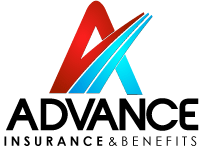Understanding Commercial Property Insurance: What Every Business Owner Should Know
As a business owner, protecting your investment is paramount, and commercial property insurance stands as one of the key pillars in safeguarding your assets. Whether it’s a sudden natural disaster or a break-in, having the right coverage can dramatically lessen the impact of such events on your operations. Let’s delve into what commercial property insurance is and why it’s crucial for your business.
What Exactly is Commercial Property Insurance?
Think of commercial property insurance as a safety net for your business’s physical assets. This includes your office buildings, the furniture inside, equipment, and even the sign out front. It’s designed to cover a broad spectrum of buildings and contents that your business owns, ensuring that you’re prepared for the worst.
What Does it Cover?
Your policy’s coverage can vary, but it typically includes:
- Buildings: This pertains to the physical structure of all your business premises.
- Contents: This covers everything inside your buildings, from computers and office equipment to inventory.
- Exterior Fixtures: Items such as outdoor signs, fences, and garden furniture.
- Property of Others: If you’re holding or leasing property that belongs to others, it’s also protected.
Common Perils Covered
Your commercial property insurance helps you handle losses from several types of incidents:
- Natural Disasters: Coverage against fire, storms, and regional-specific issues like earthquakes or floods. Note that earthquakes and floods are standard exclusions but may be available by endorsement or by other types of coverage like a Difference In Conditions policy.
- Theft and Vandalism: Safeguards against losses due to criminal actions.
- Accidental Damage: Provides for mishaps that can occur during daily operations.
Actual Cash Value vs. Replacement Cost: Which to Choose?
Deciding whether to opt for actual cash value (ACV) or replacement cost coverage is crucial. ACV takes into account depreciation, paying out the current value of an item. On the other hand, replacement cost covers what it would actually cost to replace the item new, which can be vital in keeping your business operational without taking additional depreciation losses.
Optional Add-ons for Enhanced Protection
- Business Interruption Insurance: This covers revenue loss and operating expenses if your business must temporarily close due to a covered peril. Something important to note is that most policies do not include virus outbreaks as covered perils, as we saw during the COVID-19 pandemic.
- Equipment Breakdown: Protects against unexpected mechanical failures that aren’t covered under standard policies.
Customizing Your Coverage
Since every business is unique, your commercial property insurance should reflect your specific needs. By understanding your business’s value and risks, you can better decide on the coverage limits and additional protections that are right for you.
Final Thoughts
Investing in commercial property insurance isn’t just about fulfilling a requirement—it’s about making a strategic choice to protect your business’s future. Regular reviews and adjustments to your policy ensure that your coverage evolves alongside your business. A conversation with an insurance expert can help tailor a policy that fits perfectly with your business needs, giving you peace of mind and security.
